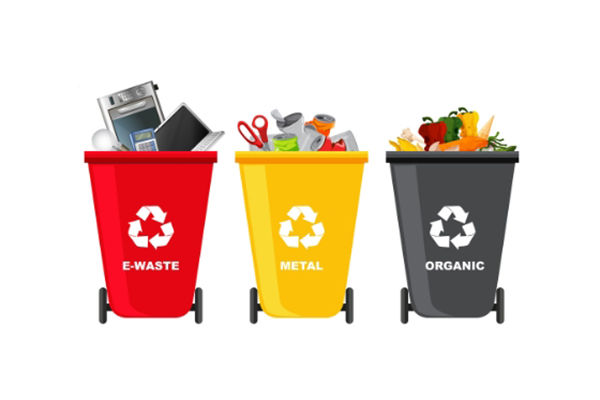The Recycling Revolution: Sorting Your Waste
In today’s environmentally conscious world, it’s crucial to understand how to properly dispose of your waste. One of the most fundamental steps in this process is knowing the different types of trash cans and their intended uses. Contrary to popular belief, there are more than just two: general waste and recycling.
1. General Waste
The most common type of trash can, the general waste bin, is designed to hold all non-recyclable and non-compostable items. This includes food scraps, plastic bags, tissues, and other items that cannot be recycled or composted. While the exact contents may vary by region, it’s generally a good rule of thumb to avoid putting anything in this bin that can be recycled or reused.
2. Recycling
Recycling bins are used to collect items that can be processed and turned into new products. This typically includes paper, cardboard, glass, plastic, and metal. However, it’s important to note that not all items within these categories are recyclable. For example, some types of plastic or glass may not be accepted by local recycling programs.
3. Composting
Composting is a process that breaks down organic matter into a nutrient-rich soil amendment. Compost bins are used to collect food scraps, yard waste, and other organic materials that can be composted. The resulting compost can be used to fertilize gardens, lawns, and houseplants.
Beyond the Basics: Specialty Trash Cans
In addition to the three primary types of trash cans, there are also several specialty bins designed for specific types of waste. These may include:
- Hazardous waste bins: For items such as batteries, paint, and cleaning products that contain harmful chemicals.
- Electronic waste bins: For electronic devices such as computers, TVs, and smartphones.
- Medical waste bins: For items such as syringes, needles, and bandages.
Tips for Effective Waste Management
To ensure that your waste is disposed of properly and efficiently, follow these tips:
- Research local regulations: Familiarize yourself with the specific recycling and composting guidelines in your area.
- Clean and rinse recyclables: Remove food and liquid residue from recyclable items to ensure they can be processed effectively.
- Avoid contamination: Keep general waste and recyclables separate to prevent contamination.
- Support local recycling initiatives: Participate in community recycling programs and support businesses that prioritize sustainability.
By understanding the different types of trash cans and their intended uses, you can play a vital role in reducing waste and protecting the environment.
Post time: 09-11-2024




